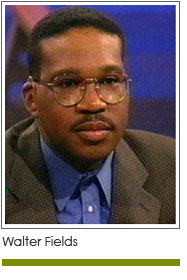 It came as no surprise that the August employment numbers from the Bureau of Labor Statistics were bad; still, the degree to which Black workers have been harmed is startling. It is numbing to think about the effect of a 16.7 percent Black unemployment rate on the larger community, and the impact upon African-American families from an 18 percent unemployment rate for Black men. In the second decade of the 21st century we are perhaps witnessing the first glimpse of an economic realignment in which Blacks will be permanently dislocated from the dream of American prosperity. Worse, the deepening wealth gap suggests a nation in which within decades, a majority of color as projected by Census data, will be a subservient class to a white minority. And while not all whites will be in a position of comparative advantage relative to Blacks, there will be economic elites that will transfer their privileged status to lower-income whites by way of access to jobs, capital and educational opportunity.
It came as no surprise that the August employment numbers from the Bureau of Labor Statistics were bad; still, the degree to which Black workers have been harmed is startling. It is numbing to think about the effect of a 16.7 percent Black unemployment rate on the larger community, and the impact upon African-American families from an 18 percent unemployment rate for Black men. In the second decade of the 21st century we are perhaps witnessing the first glimpse of an economic realignment in which Blacks will be permanently dislocated from the dream of American prosperity. Worse, the deepening wealth gap suggests a nation in which within decades, a majority of color as projected by Census data, will be a subservient class to a white minority. And while not all whites will be in a position of comparative advantage relative to Blacks, there will be economic elites that will transfer their privileged status to lower-income whites by way of access to jobs, capital and educational opportunity.
Since Reconstruction African-Americans have fully invested in the promise of civic and economic inclusion. The investment, however, has yet to pay off, and there is a growing frustration that the Black community will forever be on the outside looking in; watching a nation enriched by our labor leaving us behind. The success at being fully vested in the American dream has been fleeting, with gains made in the industrial era evaporating quickly as the 20th century gave way to a new technology driven economy that depends more on knowledge acquisition than skilled manual labor. Despite enduring physical abuse during slavery, legally sanctioned segregation and discrimination in the era of Jim Crow, and though willingly jeopardizing our lives in military service while being treated as second-class citizens, African-Americans remain at the bottom of the economic barrel. It is a sobering reality that is even beginning to color the attitude of the Black electorate toward the current administration.
It is against this backdrop that African-Americans wait to hear President Obama speak on Thursday night to explain how he intends to tackle the nation’s jobs crisis. It is not only a defining moment for this historic presidency; it is a pivotal moment for Blacks in the United States. While few Blacks realistically expected this President to deliver manna from heaven, there is a palpable sense of despair that the bottom has fallen out under the watch of the first African-American to occupy the Oval Office. Since the beginning of the recession, Blacks have waited patiently as what little wealth that existed in families vanished with the loss of jobs and retirement accounts, and the meltdown of the home mortgage market. Our patience was further tested by President Obama’s insistence that our fortunes would rise in concert with the economic recovery, the proverbial rising tide lifting all boats. Judging by the August jobs numbers, not only is the tide not rising but the boat carrying African-Americans has sprung a leak.
As the President settles behind the lectern in the House chamber on Thursday evening, my hope is that he grasps the sense of urgency within the African-American community. He must acknowledge the circumstances that have befallen Blacks and show real leadership in explaining to the nation why our predicament is deserving of special focus. To ignore the plight of Black workers is to jeopardize the future and security of the nation, and for this President, a recipe for electoral disaster in 2012. It need not be. There is still time for this administration to come out of the fog and offer a prescription for an economic recovery that cures the specific ailment of Black joblessness while also tackling the larger issue of reviving the American workforce. It is a moment of extreme political vulnerability but also of historic opportunity.
It is a bit of tragic irony that Blacks are in this predicament. Against the backdrop of the current occupant of the White House, and the imminent dedication of the Martin Luther King, Jr. Memorial, the first such monument recognizing an African-American on the National Mall, the question of our place in this nation remains unanswered. The glimmer of hope many had in November 2008 is giving way to a sense of dread that our past is present.
Walter Fields is Executive Editor of NorthStarNews.com.












